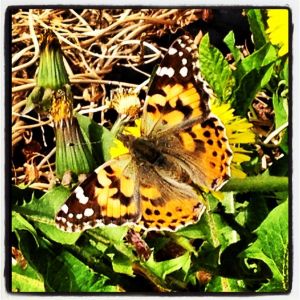Southern species becoming more common in parts of New England
By Summit Voice
SUMMIT COUNTY â€" Global warming is reshaping butterfly communities in the Northeast, according to trends that have been well documented by butterfly enthusiasts and citizen scientists in Massachusetts.
During the past 19 years, the Massachusetts Butterfly Club has logged species counts on more than 20,000 treks in the area, with their observations filling a crucial gap in the scientific record.
The information was incorporated by researcher Greeg Breed, a post-doctoral fellow at the Harvard Forest in Petersham, Mass., and published in the most recent issue of Nature Climate Change.
Subtropical and warm-climate species such as the giant swallowtail and Zabulon skipperâ€"many of which were rare or absent in Massachusetts as recently as the late 1980sâ€"show the sharpest increases in abundance.
At the same time, more than three quarters of northerly speciesâ€"species with a range centered north of Bostonâ€"are now declining in Massachusetts, many of them rapidly. Most impacted are the species that overwinter as eggs or small larvae: these overwintering stages may be much more sensitive to drought or lack of snow cover.
“For most butterfly species, climate change seems to be a stronger change-agent than habitat loss. Protecting habitat remains a key management strategy, and that may help some butterfly species. However, for many others, habitat protection will not mitigate the impacts of warming,†Breed said, adding that the changes present new questions for resource managers.
For example, populations of frosted elfins, a species that receives formal habitat protection from the state, have increased by 100 percent since 1992. But in that same span, atlantis and aphrodite fritillaries, historically common summer butterflies in Massachusetts, have declined by nearly 90 percent, yet don’t have any protection.
The kind of information collected by the Massachusetts Butterfly Club is becoming increasingly valuable to scientists and land managers alike.
“Careful datasets from amateur naturalists play a valuable role in our understanding of species dynamics,†said Elizabeth Crone, senior ecologist at the Harvard Forest and another co-author on the study.
“Scientists constantly ask questions, but sometimes the data just isn’t there to provide the answers, and we can’t go back in time to collect it. This study would not have been possible without the dedication and knowledge of the data collectors on those 19,000 club trips.â€
39.586656 -106.092081
Filed under: biodiversity, climate and weather, endangered species, Environment, global warming Tagged: | butterfiles, climate change, global warming, Harvard Forest, Massachusetts, Massachusetts Butterfly Club

No comments:
Post a Comment